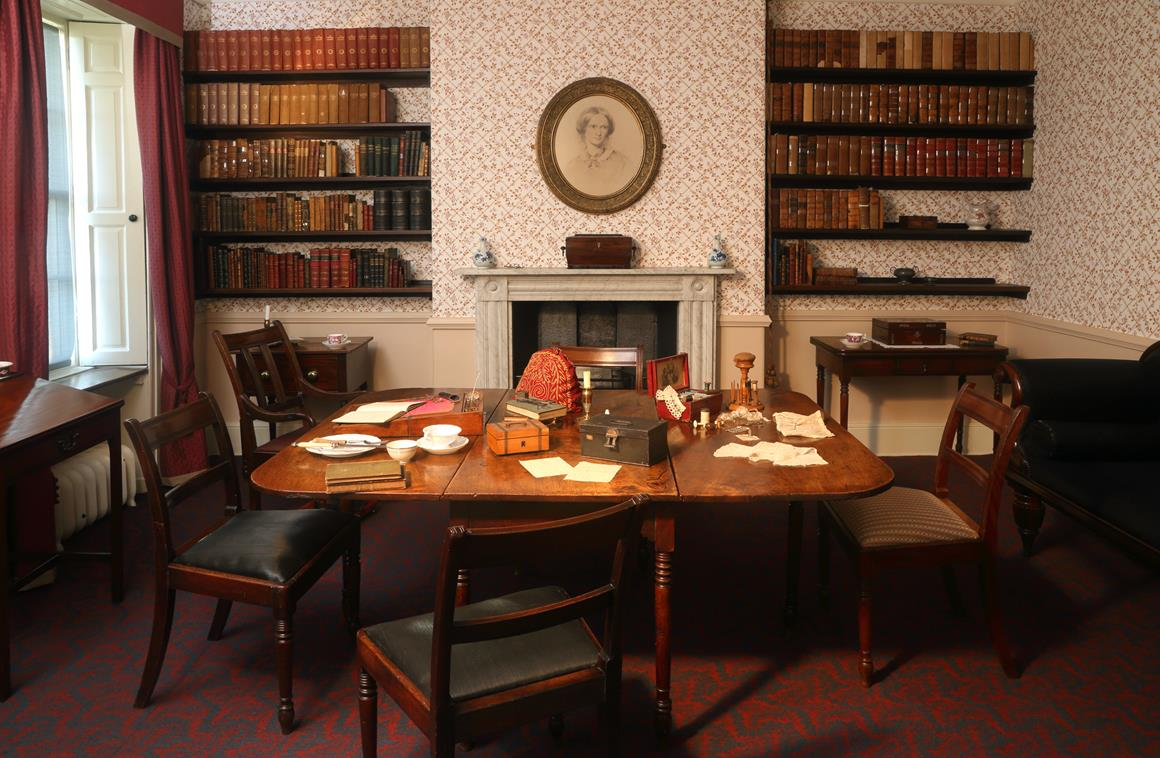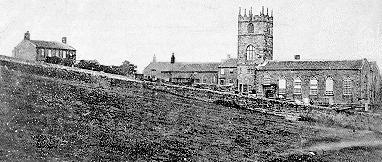The creation of Jane Eyre.
In the stillness of the rooms in Manchester, rarely going outside the house, Charlotte wrote incessantly for three weeks, haunted she said by Sin and Suffering. She told later Harriet Martineau that when she came to Thornfield and Mr. Rochester, she could not stop. Charlotte wrote on feverely, until she had carried her heroine away from Thornfield, and was herself in a fever which compelled her to pause.
Yet there were long stretches Charlotte could not write at all, and she had to wait for inspiration to strike. Those were low periods. As she later told Mrs Gaskell, it was not every day she could write. Sometimes weeks of even months elapsed before she had anything to add to that portion of her story which was allready written. Than, some morning, she wake up, and the progress of her story lay clear and bright before her, in distinct vision.
From the book: Charlotte Bronte a writer's life from Rebecca Fraser.
-------------------
Any one who has studied her writings,--whether in print or in her letters; any one who has enjoyed the rare privilege of listening to her talk, must have noticed her singular felicity in the choice of words. She herself, in writing her books, was solicitous on this point. One set of words was the truthful mirror of her thoughts; no others, however apparently identical in meaning, would do. She had that strong practical regard for the simple holy truth of expression, which Mr. Trench has enforced, as a duty too often neglected. She would wait patiently searching for the right term, until it presented itself to her. It might be provincial, it might be derived from the Latin; so that it accurately represented her idea, she did not mind whence it came; but this care makes her style present the finish of a piece of mosaic. Each component part, however small, has been
dropped into the right place. She never wrote down a sentence until she clearly understood what she wanted to say, had deliberately chosen the words, and arranged them in their right order. She was wakeful for hours in the night. Her finished manuscripts were copied from these pencil scraps, in clear, legible, delicate traced writing, almost as easy to read as print.
The sisters retained the old habit, which was begun in their aunt's life-time, of putting away their work at nine o'clock, and beginning their study, pacing up and down the sitting room. At this time, they talked over the stories they were engaged upon, and described their plots. Once or twice a week, each read to the
others what she had written, and heard what they had to say about it. Charlotte told me, that the remarks made had seldom any effect in inducing her to alter her work, so possessed was she with the feeling that she had described reality; but the readings were of great and stirring interest to all, taking them out of the gnawing pressure of daily-recurring cares, and setting them in a free place. It was on one of these occasions, that Charlotte determined to make her heroine plain, small, and unattractive, in defiance of the accepted canon.
The-Life-of-Charlotte-Bronte-Volume-2-At1
Jane Eyre




Geen opmerkingen:
Een reactie posten